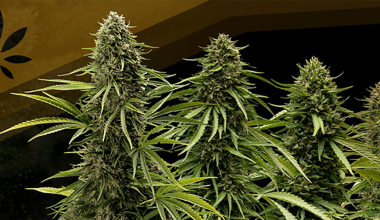Casey O’Neill is good at selling vegetables.
The legacy outdoor cultivator in Mendocino County, California, says he’s also pretty good at selling marijuana.
But although O’Neill’s HappyDay Farms is both a state-licensed cannabis cultivator and a verified participant in county-certified farmers markets, he cannot sell his operation’s produce and marijuana at the same table.
And despite significant interest from consumers, county agricultural commissioners and farmers market organizers, O’Neill won’t be able to sell his marijuana at such events until state lawmakers change how cannabis businesses are licensed and how regulated MJ is sold.
Until then, significant opportunity – and money – will be left on the table by struggling marijuana businesses across the country, according to observers such as Genine Coleman, executive director of the California-based Origins Council, which advocates for small outdoor farmers.
“Direct-to-consumer for small craft producers on the state and federal level remains one of (the) top priorities” for national advocacy organizations such as the National Craft Cannabis Coalition, Coleman said.
Farmers markets can offer liquor but not marijuana
From California to New York, small farms are attempting to diversify by offering craft marijuana along with produce at farmers markets and via community-supported agriculture (CSA) programs.
There are some existing opportunities.
For example, cannabis is currently showcased – and sold – at special events such as the annual California State Fair in Sacramento.
And New York Gov. Kathy Hochul earlier this year signed legislation legalizing a “cannabis showcase event permit” allowing for marijuana-specific farmers markets – with the participation of a licensed retailer.
However, that’s not quite the direct-to-consumer opportunity that small- to medium-sized businesses want and need.
As the spendy offerings at high-end farmers markets at Brooklyn’s Grand Army Plaza or San Francisco’s Ferry Building show, farmers markets are keen to lure deep-pocketed consumers with craft liquor, wine and cider as well as local honey, wool, salmon and other choice commodities.
Craft marijuana is the perfect complement to all this, the logic goes.
For small farmers such as O’Neill, cannabis used to be a lucrative commodity that supplemented or even subsidized his farm’s food production.
But with marijuana prices crashing under the weight of oversupply and illicit-market operators, the consistent weekly revenue from food is giving HappyDays crucial liquidity, helping keep the whole operation afloat, O’Neill told MJBizDaily.
That could change, however, if he were allowed to show curious farmers market customers stocking up on his operation’s pepper jelly and salad greens some of the award-winning HappyDays Papaya Bomb or Government Oasis flower strains.
“Our whole ethos from the beginning is asking why is it that these two agricultural products are completely separate in the supply chain, despite the fact that we grow them in the same space,” O’Neill said.
In the medical marijuana era, “it was like a dream come true,” he added.
“We had herb on the table, deli-style – you could sample, squeeze a nug and then take it home.”
And now, 10 years later, all of that is outlawed since California legalized adult-use marijuana in 2016.
“It’s been … brutal,” O’Neill said.
Cannabis farmers can show but not sell
Technically, O’Neill and other small cannabis could show consumers their products at farmers markets.
But despite support from the Mendocino County Farmers Market Association and the county’s agricultural commissioner, a combination of state and county law means forbid O’Neill from selling marijuana to consumers.
That’s in part because county zoning makes HappyDays ineligible for a microbusiness permit that would allow the farm to be a “vertically integrated” cultivator and seller.
The Mendocino County Board of Supervisors could at least tweak zoning rules to make marijuana licensees in more areas eligible for the microbusiness permit that allows for both cultivation and sales.
But the state also would have to make changes to what’s allowed to be sold at farmers markets.
For now, “unfortunately, cannabis is not on that list,” said Mendocino County Agricultural Commissioner Angela Godwin, who fully supports marijuana sales at farmers markets.
“As far as I’m concerned, it’s a legitimate agricultural product,” she added.
“I don’t know how you can possibly say it’s not.”
Limited pilot programs – which allow tracked-and-traced cannabis to be sold in controlled environments such as the state fair – show that the idea will work.
“But that’s not really helping the farmer,” Godwin added.
In New York, the state Cannabis Control Board on Tuesday took another step toward licensing “cannabis showcase events.”
But it’s not yet clear whether New York’s Office of Cannabis Management will allow licensed growers to take their wares to general farmers markets or keep sales to age-gated marijuana-specific events.
“My Ithaca farmers market is very open to adding cannabis to it,” said Allan Gandelman, who operates a farm in the Finger Lakes area and co-founded the Cannabis Association of New York, which advocates for small and medium licensees.
Subscribe to the MJBiz Factbook
Exclusive industry data and analysis to help you make informed business decisions and avoid costly missteps. All the facts, none of the hype.
What you will get:
- Monthly and quarterly updates, with new data & insights
- Financial forecasts + capital investment trends
- State-by-state guide to regulations, taxes & market opportunities
- Annual survey of cannabis businesses
- Consumer insights
- And more!
‘Devasting blow’ to small cannabis farmers
O’Neill might be selling marijuana at farmers markets already had California Gov. Gavin Newsom not intervened.
Last September – around the time Newsom imposed an emergency ban on hemp-derived THC products – he declined to sign a bill into law that would have allowed cannabis cultivators to sell their products “at state temporary events for up to 32 days per calendar year.”
That was a “devastating blow to the small farming community,” said the Origins Council’s Coleman.
Factoring into the governor’s action was opposition from licensed retailers.
There also were concerns that a new direct-to-consumer sales model “would undermine the existing retail licensing framework and place significant strain on the Department of Cannabis Control’s ability to regulate and enforce compliance,” he wrote.
California regulators, worried about maintaining track-and-trace controls, were reluctant to add another potential sales channel at a time when enforcing current rules is proving challenging, said Claudio Miranda, a co-founder and chief operating officer of San Francisco-based Budist, a cannabis product review app.
“It really boils down to two main issues,” he said. “Chain of custody controls … and making sure there’s enforcement.”
Newsom said he was open to lawmakers trying to advance more legislation, but no such bills were introduced this year.
That’s leaving small farmers to ponder other solutions while they wait for the law to catch up to what they argue is both a logical and desired solution: Allow them to sell their state-legal marijuana at the same tables they sell other agricultural products.
“In an ideal world, I would sell weed at the farmers market,” O’Neill said. “There are regulatory safeguards: It needs to be in compliant packaging, it needs to be tested, etc.
“But following those compliant standards, we should be able to do this.”
Chris Roberts can be reached at chris.roberts@mjbizdaily.com.
Medical Disclaimer:
The information provided in these blog posts is intended for general informational and educational purposes only. It is not a substitute for professional medical advice, diagnosis, or treatment. Always seek the advice of your physician or other qualified healthcare provider with any questions you may have regarding a medical condition. The use of any information provided in these blog posts is solely at your own risk. The authors and the website do not recommend or endorse any specific products, treatments, or procedures mentioned. Reliance on any information in these blog posts is solely at your own discretion.





